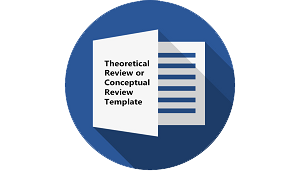A Sociopragmatic Study of Cooperative Principles in a Group of Middle-Aged Women’s Conversation
DOI:
https://doi.org/10.30957/ijoltl.v6i2.669Keywords:
Cooking Tradition, Cooperative Principles, Middle-aged Women, MinangkabauAbstract
Communication is a way to interact with others and also a process of delivering information from the speaker to a hearer. In formal communications, Grice's cooperative principles tend to be recommended to be applied in a certain context. This research is aimed at identifying the use of cooperative principles by middle-aged women when having interaction in the kitchen at the wedding party. The research is conducted by using a qualitative approach in 2 regencies in West Sumatera Indonesia. The data were recorded and also note-taken in the field toward 27 women selected by purposive sampling. These women were around 45-60 years old. The interview was conducted with one Bundo Kandung, three customs leaders, and two intellectual people. The aspects related to context and politeness became the consideration in analyzing the data. The results showed that only two forms among the four maxims at cooperative principle used by the middle-aged women when they had communication in the kitchen at the wedding party. They are 1) the maxim of quantity and 2) the maxim of quality. A number of utterances were violating the maxim in cooperative principles. A number of utterances found are categorized as violations of the maxims if it is based on Grice’s theory. However, that does not apply to the utterances in a group of middle-aged women in Minangkabau during the cooking tradition. It is because there are social and cultural contexts that must be considered when understanding and analyzing these utterances.
Downloads
References
Anindya, B., Revita, I., & Sastra, G. (2019). Conversational Implicature Function between Mitsubishi Car Salesperson and Consumers in Padang. Langkawi: Journal of The Association for Arabic and English, 5(2), 140. https://doi.org/10.31332/lkw.v5i2.1312
Ariel, M. (2019). Different prominences for different inferences. Journal of Pragmatics, 154, 103–116. https://doi.org/10.1016/j.pragma.2019.07.021
ARTIKASARI, E. P. (2020). Flouting Maxims in Stand-up Comedy Act by Sierra Katow: A Pragmatics Study. Language Horizon. https://jurnalmahasiswa.unesa.ac.id/index.php/language-horizon/article/view/31767
Bababayli, I. (2020). A comparative sociopragmatic analysis of the dialogues in Turkish and Azerbaijani B1-B2 EFL textbooks. Journal of Language and Linguistic Studies, 16(3), 1500–1522. https://doi.org/10.17263/jlls.803869
Cahyani, K. W. T., Indrawati, N. L. K. M., & Qomariana, Y. (2019). Politeness Maxims used in the Dialogue of America’s Presidential Candidates Debate between Donald Trump and Hillary Clinton. In Humanis (p. 280). Universitas Udayana. https://doi.org/10.24843/jh.2019.v23.i01.p40
Chłopicki, W. (2019). Communication styles: Between deliberate strategy and ambivalence. In Journal of Pragmatics (Vol. 153, pp. 15–19). https://doi.org/10.1016/j.pragma.2019.08.001
Cunha, G. (2019). The aggressive use of language in an audience: A discursive and interactionist approach to the study of im/politeness. Calidoscopio, 17(2), 297–319. https://doi.org/10.4013/cld.2019.172.05
Danziger, R. (2020). The pragmatics of flattery: The strategic use of solidarity-oriented actions. Journal of Pragmatics, 170, 413–425. https://doi.org/10.1016/j.pragma.2020.09.027
Davis, D. R. (2019). Maxims. In The Oxford Handbook of Law and Humanities (pp. 654–669). Oxford University Press. https://doi.org/10.1093/oxfordhb/9780190695620.013.40
Fetzer, A., & Osiho, E. (2011). Context and Contexts. John Benjamins Publishing Company.
Gotzner, N. (2019). The role of focus intonation in implicature computation: a comparison with only and also. Natural Language Semantics, 27(3), 189–226. https://doi.org/10.1007/s11050-019-09154-7
H.Paul., G. (1975). Logig and Conversation, in P.Cole and J.L Morgan eds, Syntax and Semantic, Vol 3. Academic Press.
Halliday, M. A. . (1996). “Introductionâ€, Language as social semiotic: The social interpretation of language and meaning. In The Communication Theory Reader.
Halliday, M. A. K., & Hasan, K. (2014). Cohesion in English. In Cohesion in English. https://doi.org/10.4324/9781315836010
Hymes, D. (2013). Foundations in Sociolinguistics: An ethnographic approach. In Foundations in Sociolinguistics: An ethnographic approach. https://doi.org/10.4324/9781315888835
Hymes, D. (2016). Introduction. In “In vain I tried to tell you.†https://doi.org/10.9783/9781512802917-002
Hymes, D. (2020). The Scope of Sociolinguistics. International Journal of the Sociology of Language. https://doi.org/10.1515/ijsl-2020-2084
I Dewa Putu Wijana. (1996). Dasar-Dasar Pragmatik. Andi.
Ike Revita. (2013). Pragmatik:Kajian Tindak Tutur Permintaan Lintas Bahasa. Fakultas Ilmu Budaya Universitas Andalas.
Jewad, H. G., Ghabanchi, Z., & Ghazanfari, M. (2020). Politeness Strategies and Maxims in English for Islamic texts: A Sociolinguistic Analysis of Quran. works.bepress.com. https://works.bepress.com/arabworldenglishjournal-awej/820/download/
Khairiah, N., Revita, I., & Marnita, R. (2020). The Influences of Cooperative Principle to the Politeness Principle Violations in the Movie Tenggelamnya Kapal Van Der Wijck. Gramatika, 6(1), 93–105. http://ejournal.stkip-pgri-sumbar.ac.id/index.php/jurnal-gramatika/index
Leech, G. (1983). Principles of Pragmatics. Longman.
Leech, G. (2007). Politeness: Is there an East-West divide? Journal of Politeness Research, 3(2), 137–206. https://doi.org/10.1515/PR.2007.009
Levinson, S. C. (1996). Language and space. Annual Review of Anthropology. https://doi.org/10.1146/annurev.anthro.25.1.353
Lexy Moleong. (1998). Metode Penelitian Kualitatif. PT.Remaja Rosda Karya.
Marpurdianto, K. (2019). Positive and negative politeness strategies used by David Muir and Donald Trump on “ABC News†and in “Charlie Rose show.†http://digilib.uinsby.ac.id/29405/
Meibauer, J. (2019). What is an indirect speech act?: Reconsidering the literal force hypothesis. In Pragmatics & Cognition (Vol. 26, Issue 1, pp. 61–84). John Benjamins Publishing Company. https://doi.org/10.1075/PC.19009.MEI
Muhyidin, M. (2020). AA socio-pragmatics study: Flouting of conversational maxims found in “Bence†traditional market, Kediri. EDULINK: EDUCATION AND …. https://ejournal.uniska-kediri.ac.id/index.php/EDULINK/article/view/990
Oktavianus, & Revita, I. (2013). Kesantunan Berbahasa (1st ed.). Minangkabau Press.
Patten, A. (2018). Language. The Oxford Handbook of Distributive Justice, June, 597–618. https://doi.org/10.1093/oxfordhb/9780199645121.013.27
Pratama, H. (2019). Conversational implicature comprehension strategies used by English learners in Indonesia. Linguistic Research, 36(3), 415–458. https://doi.org/10.17250/khisli.36.3.201912.004
Rett, J. (2020). Manner implicatures and how to spot them. International Review of Pragmatics, 12(1), 44–79. https://doi.org/10.1163/18773109-01201105
Revita, I. (2020). Politeness strategies of minangkabau ethnic in Indonesia. Asian ESP Journal, 16, 13–34. https://www.scopus.com/inward/record.uri?partnerID=HzOxMe3b&scp=85099934733&origin=inward
Revita, Ike. (2008). Permintaan dan Penolakan: Kajian Sosiopragmatik. UGM.
Revita, Ike. (2018a). Kaleidoskop Linguistik (I, 2018). CV. Rumahkayu Pustaka Utama.
Revita, Ike. (2018b). Women Trafficking dalam Bingkai Sosiopragmatik.pdf (I, Juli 20). Visigraf.
Revita, Ike, Marwati, S., Mardhiah, A., & Ayumi. (2020). Maxims of Politeness Performed by Female Sellers at Traditional Market in Sumatera Barat. Arbitrer, 7(1), 8–15. http://arbitrer.fib.unand.ac.id/index.php/arbitrer/article/view/169/113
Revita, Ike, Trioclarise, R., Anggreiny, Nila, & Zalfikhe, F. A. (2020). Perlocutionary Act of the Verbal Violence Against Women in Indonesia. Gramatika, 6(1), 39–50. http://ejournal.stkip-pgri-sumbar.ac.id/index.php/jurnal-gramatika/issue/view/275
Revita, Ike, Wekke, I. S., & Trioclarise, R. (2017). Empowering the Values of Minangkabau Local Wisdom in Preventing the Activity of Women Trafficking in West Sumatera. IIOP Conference, 3–6.
Revita, Ike, Wijana, I. D. P., & Poedjosoedarmo, S. (2012). Permintaan Dalam Bahasa Minangkabau. Humaniora, 19(2), 195–206. https://doi.org/10.22146/jh.v19i2.904
Rosita Ambarwati, Joko Nurkamto, R. S. (2019). Phatic and Politeness on Women’s Communication in Facebook: Humanistic Teaching Perspective of Being Polite in Social Media. IJELTAL (Indonesian Journal of English Language Teaching and Applied Linguistics, 4(1), 95–108.
Saradifa, A. S. (2020). NON-OBSERVANCE OF GRICE’S MAXIMS FOUND IN “THE GRAPEVINE: GOSSIP AT WORK, WHAT SHOULD YOU DO AS A LEADER?†DRAMA SERIES SCRIPT …. JELLE: Journal Of English Literature, Linguistics …. http://www.jurnal.unikal.ac.id/index.php/jelle/article/view/959
Sbisa, M., & Turner, K. (2013). Pragmatics of Speech Action. De Gruyter Mouton.
Sifianou, M. (2019). Im/politeness and in/civility: A neglected relationship? In Journal of Pragmatics (Vol. 147, pp. 49–64). North-Holland. https://doi.org/10.1016/J.PRAGMA.2019.05.008
Stephen Levinson. (1993). Principles of Pragmatics. Cambridge University Press.
Sullivan, J. (2019). Differentiating scalar implicature from exclusion inferences in language acquisition. Journal of Child Language, 46(4), 733–759. https://doi.org/10.1017/S0305000919000096
Downloads
Published
How to Cite
Issue
Section
License
Authors who publish with this journal agree to the following terms:
- Authors retain copyright and grant the journal right of first publication with the work simultaneously licensed under a Creative Commons Attribution-ShareAlike 4.0 International License that allows others to share the work with an acknowledgement of the work's authorship and initial publication in this journal.
- Authors are able to enter into separate, additional contractual arrangements for the non-exclusive distribution of the journal's published version of the work (e.g., post it to an institutional repository or publish it in a book), with an acknowledgement of its initial publication in this journal.
- Authors are permitted and encouraged to post their work online (e.g., in institutional repositories or on their website) prior to and during the submission process, as it can lead to productive exchanges, as well as earlier and greater citation of published work (See The Effect of Open Access).












